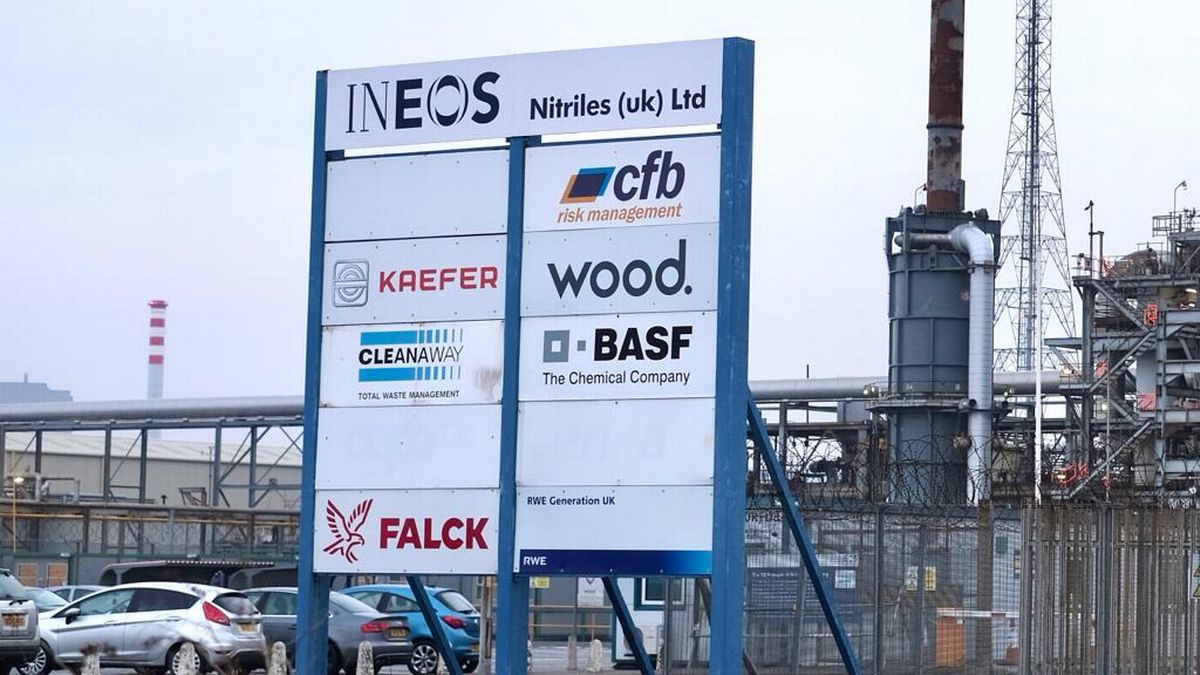Political fallout as BASF closes UK site
BASF has notified Ineos that it intends to close its hexamethylene diamine (HMD) at the Seal Sands site on Teesside, UK. It has also served notice on its contract to supply services and utilities there until 2028. As a result, Ineos has begun consultation on the proposed closure of the services and utilities plant. In all, some 30 jobs could be lost.
The plant, which Ineos operated for BASF, had been idled since January 2020. BASF was due to take it over in full from its restart in February 2021, but had expressed concerns about its “profitability and competitiveness”. The company confirmed to Stockton North MP, Alex Cunningham, that it will close the plant during 2021.
Geoff Mackey, corporate affairs and sustainability director at BASF UK, told the local press that BASF had been in discussions with Ineos and others for “alternative supply concepts”. It has now decided to partner with the Butachimie HMD plant in France and will therefore not restart Seal Sands.
This followed on from Ineos’ confirmation in December that it will decommission and close its 28,000 tonnes/year acrylonitrile (ACN) plant at Seal Sands in 2021. The company said that it had carried out two months of employee consultations but the investment needed to make operations safe and profitable was unviable after what it called “decades of underinvestment”. This decision had put another 145 jobs at risk.
The original plan was for the HMD plant to be transferred to BASF and site services to be restructured accordingly. Both HMD and CAN are mainly used in the production of polyamide 6,6. Demand for this has been low during the automotive turndown and prices hit a two-year low in November.
Speaking to Teesside Live, a worker at the site said: “We were told BASF was going to take over control of the whole thing. They had spent a fortune on it; it had all been overhauled. The plant in France was already running. It was good news - next phone call was ‘We are shutting the plant now’ … We were like ‘What’s going on?’”
Another commented that workers had been told in October that all the money for transition and the shutdown had been granted. “People have worked for months and all over Christmas and new year preparing for a shutdown that was starting this week. It’s totally out of the blue,” he said.
There have been wider political repercussions locally, partly perhaps because the decision followed so soon on from the UK’s departure from the EU and the prolonged period of uncertainty that preceded it. Ineos CEO Jim Ratcliffe was a prominent Brexiter but the firm also announced in December that the firm’s planned Grenadier 4x4 car will be made in France rather than South Wales. By contrast, BASF UK withdrew from the UK Chemical Industries Association (CIA) because it disagreed with the CIA’s stance on not advocating for remaining in the EU after the referendum of 2016.
Tees Valley Mayor Ben Houchen described the decision as “yet more evidence that playboy billionaire Jim Ratcliffe is more interested in buying super yachts and sports teams than looking after his hard-working and dedicated workers … Rather than spending nearly £185 million on two super yachts, he should invest in his plants, back his workers and save 90 jobs in Teesside.”















